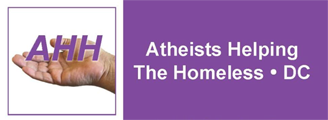By Kevin Gawora, Washington DC
Homelessness issues gained national attention on April 22nd when the Supreme Court heard arguments in the case of “City of Grants Pass v. Johnson”. This case, with a ruling expected in June, will decide whether cities are allowed to punish homeless individuals from sleeping outside on public property, regardless of the shelter options available.[1] The original court case, filed in 2018, determined it is cruel and unusual punishment to arrest or ticket people for sleeping outside when they have no place to go.[2] The ordinance imposes a $295 fine for violations, rising to $537.60 if not paid.[3] After two citations, police in Grants Pass can issue an order than bans an individual from city property. If that is violated, the individual can be charged with criminal trespass, which carries penalties of up to 30 days in jail and a $1250 fine.[4] In an amicus brief filed by representatives of the homeless individuals affected by the policy, as well as concerned third parties, “the plan was to inflict fines and jail time on the City’s homeless residents until they were ‘uncomfortable enough’ that they left Grants Pass,”.[5] The brief continues by mentioning that the supposed “offense” of “camping on public property”, the official charge that homeless individuals who sleep rough in Grants Pass receive, put differently, is akin to “the status (of homelessness being) defined by the very behavior being singled out for punishment,”.[6] The circular reasoning behind the enforcement of the ordinance points to the unstable legal ground that the City finds itself on, as well as logical inconsistency of the application of the law to the City’s homeless population.
The causes of the homelessness issue in Grants Pass are multifaceted, but the lack of available and affordable housing is the primary culprit. The vacancy rate is one percent, and the stock of affordable housing has, according to one estimate, “dwindled to almost zero”.[7] A 2019 point-in-time count of Grants Pass counted 602 homeless people and another 1,045 who were “precariously housed”.[8] The local government has long had an anti-homeless policy, with participants in a 2013 meeting discussing strategies for “pushing homeless residents into neighboring jurisdictions and ‘leaving them there’”. Soon after, the City began its current policy of stricter enforcement of its no public camping law to move out homeless Grants Pass residents. Similar laws have been used in other cities nationwide to send a location’s homeless population somewhere else, as recent numbers of homeless individuals climb by double-digits, and as of 2023, there are more than 600,000 homeless individuals nationwide.[1]
Although it is unknown how the court will rule, one thing is clear, there is a moral imperative to treat homeless people with decency and respect, which means not forcing them out of the only relatively safe and clean places they can sleep, public spaces. Organizations like Atheists Helping the Homeless, D.C. (AHHDC), a branch of the nationwide Atheists Helping the Homeless organization, stand firmly behind the homeless community in their fight for respect, housing, and success in daily life. AHHDC collects cash and gift cards to purchase essentials like toothbrushes, socks, backpacks, and flashlights, as well as in-kind donations of clothing, to distribute at monthly events in Silver Spring, Maryland. The organization is expanding and hopes to start hosting bi-weekly events in the coming months. It also is working hard to spread the word about the Grants Pass v. Johnson case to raise awareness about homeless issues.
The Grants Pass v. Johnson case is crucial in determining homeless policy in large and small counties nationwide. Although the outcome of the case is ultimately in the hands of the Supreme Court, there is substantial legal precedent for a decision in favor of Johnson, who represents the homeless community and allied organizations. Hopefully, a verdict in favor of Johnson can begin to change how individuals struggling with homelessness are treated by communities and law enforcement to create a more equitable and just society.
This article was first published in the May/June 2024 edition of WASHline, the Washington Area Secular Humanists Bi-Monthly newsletter.
[1] “Johnson v. Grants Pass: Overview.” Johnson v. Grants Pass, johnsonvgrantspass.com/. Accessed 28 Apr. 2024.
[2] Ibid.
[3] Howe, Amy. “Supreme Court to Hear Case on Criminal Penalties for Homelessness.” SCOTUSblog, 22 Apr. 2024, www.scotusblog.com/2024/04/supreme-court-to-hear-case-on-criminal-penalties-for-homelessness/.
[4] Ibid.
[5] Johnson, Edward, et al. “City of Grant’s Pass v. Johnson: Amicus Brief for Respondents.” Supreme Court, Supreme Court of the United States, https://www.supremecourt.gov/DocketPDF/23/23-175/305976/20240327111905322_No%2023-175%20Grants%20Pass%20v%20Johnson%20Respondents%20Brief%20For%20Filing.pdf.
[6] Ibid.
[7] Ibid.
[8] “2019 Point in Time Estimates of Homelessness in the U.S.” HUD.Gov, U.S. Department of Housing and Urban Development, 21 Dec. 2019, www.hud.gov/2019-point-in-time-estimates-of-homelessness-in-US.


